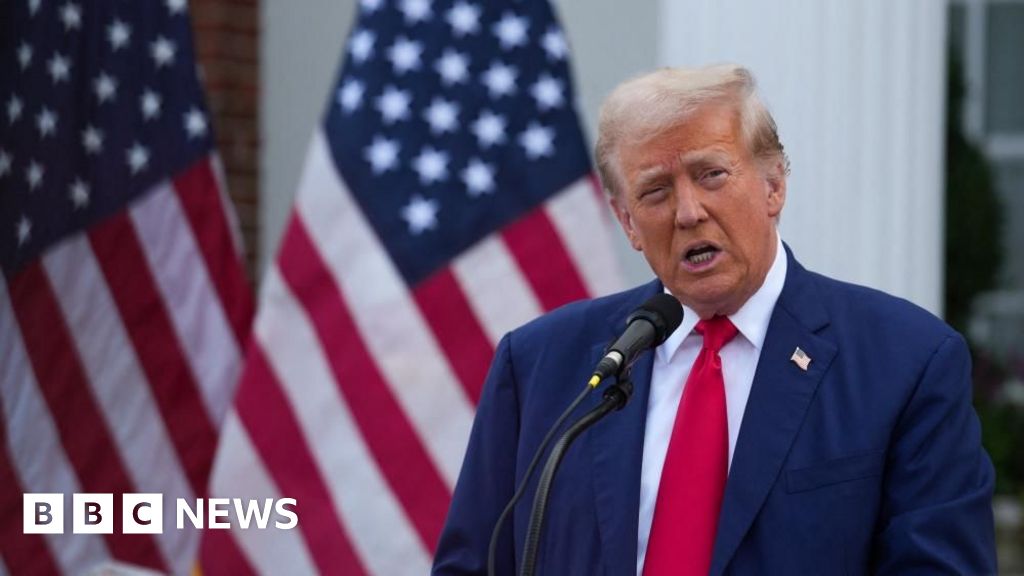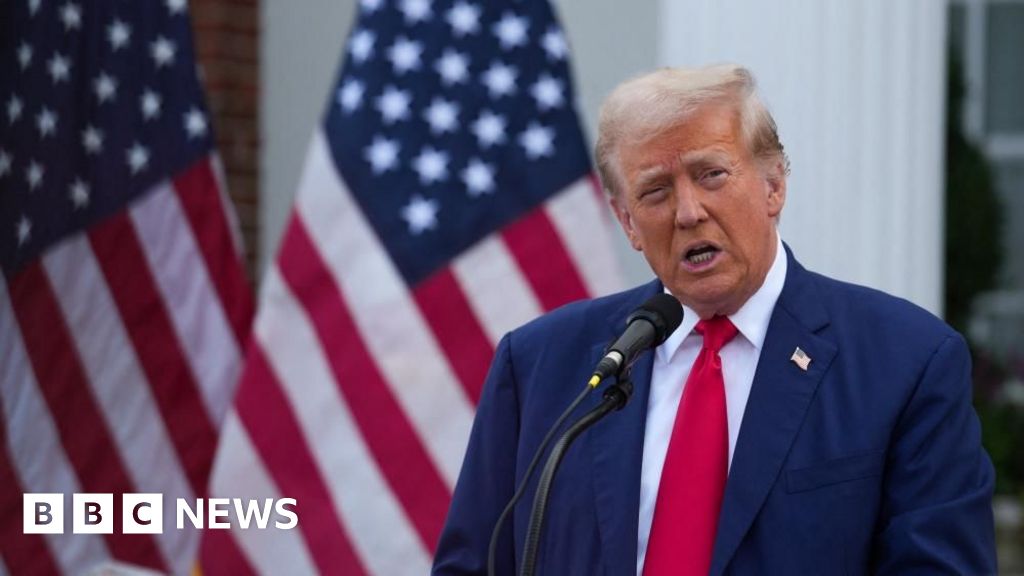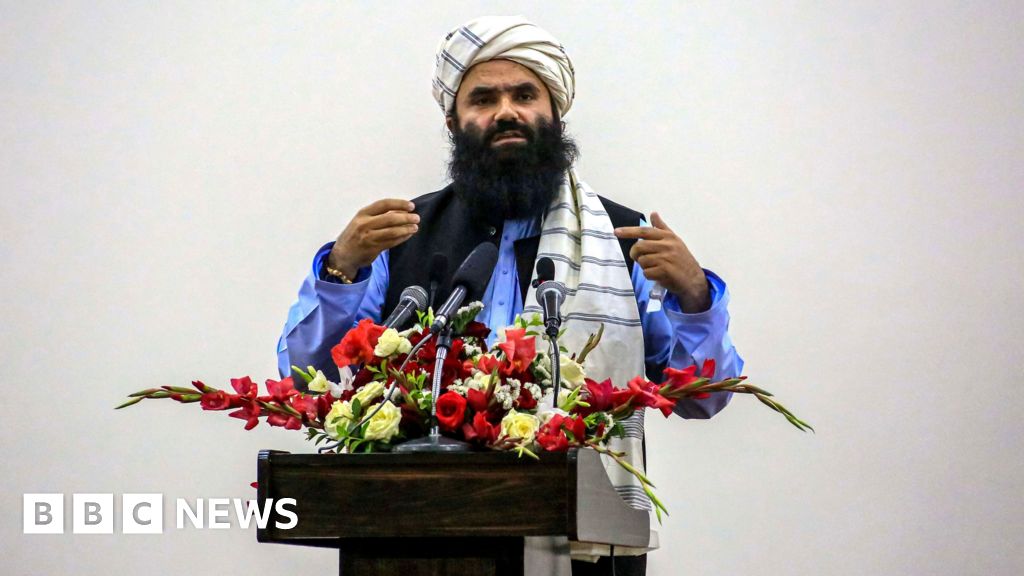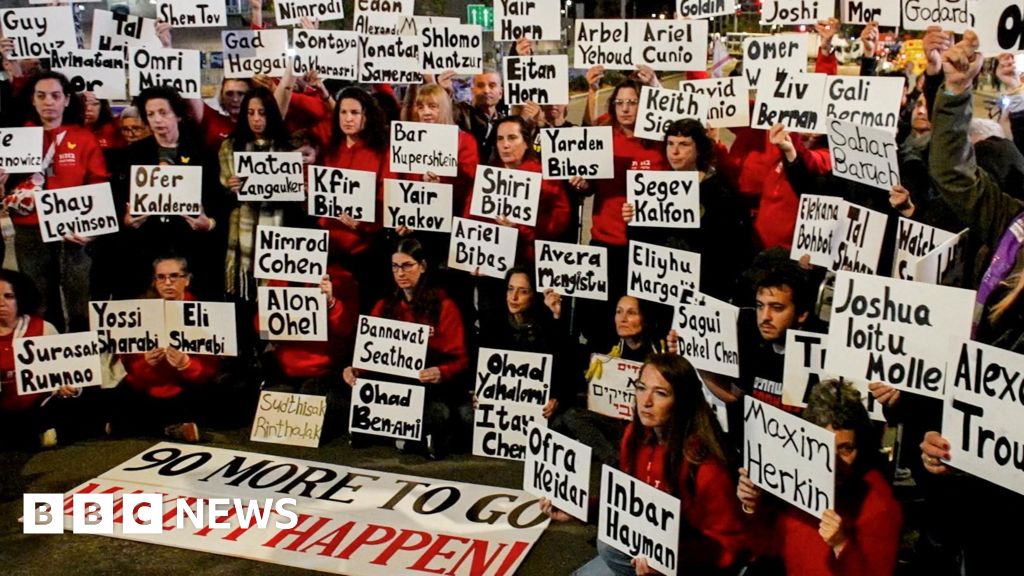
The pork sausage was a sign that this was going to be different. Or at least, that it was meant to be.
Like a grocery store employee in front of a concession stand, Donald Trump stood framed by the everyday items of an American shopping basket.
Breakfast oats. Bread. Butter. The sausage.
In a 45-minute-long pre-prepared speech at his Bedminster Golf Club in New Jersey, his remarks appeared designed to signal a shift away from the usual personal attacks on his opponent.
Reading off a piece of paper – itself something of departure from his normally freewheeling style – this was instead an attempt to focus on policy and, somewhat like the ground coffee beans that remained in shot throughout, in granular detail too.
The former president listed a barrage of what he said were price increases under the current administration. Flour up 38%, he said. Eggs, 46%.
Sure, he questioned whether Kamala Harris loves her country, impugned her intelligence and accused her of being a “communist” multiple times.
But, compared to what has come before, this was far less heavy on the insults and it will have been music to the ears of at least some senior Republican figures.
The concerns in Republican circles about Trump’s struggle to adjust to the challenge presented by Ms Harris have been mounting ever since she took over as the presumptive Democrat nominee.
“The winning formula for President Trump is very plain to see,” Kellyanne Conway, once his campaign manager and close advisor, recently told Fox News.
“It’s fewer insults, more insights.”
Others too have cringed as Trump has attacked Ms Harris over her racial identity or made bizarre claims that she was engaged in deep-fake fraud over the size of the crowds at her rallies.
“So stupid,” Megyn Kelly, the conservative commentator and former Fox News host, said in response to the latter tactic on her radio show.
“Just focus on the damn border!”
That’s a piece of advice, it has to be said, he doesn’t have too much trouble following.
Although his remarks began with a promise to focus on some “big facts and very substantial truths”, as so often they more than strained the definition of both.
He claimed, once again, that some countries are emptying out their prisons and “insane asylums” to flood the US with illegal migrants, despite there being no data on the prison history of migrants crossing the border or their mental health status.
And he repeated – without any evidence and contrary to government data – that 100% of new jobs have gone to migrants, while regurgitating false claims about having won the 2020 election.
But for those Republicans who wanted to see a new approach to counter troubling polling data, meticulous accuracy was likely not high on their list of demands from their candidate.
Even that headline list of increasing grocery costs – what Trump called “Kamala’s price hikes” – appeared to raise a number of questions.
The Reuters news agency, for example, pointed out that bread and coffee prices have actually fallen over the last year, according to the Bureau of Labor Statistics’ monthly Consumer Price Index.
But that’s not really the point. Factual or not, this was Trump connecting to voters on the issues that matter, and many do still feel the effects of the high levels of inflation under President Biden.
And with Harris yet to sit down for a formal media interview, he worked hard to land some blows against her on her record, in particular remarks she made in 2020 during widespread protests over police reform where she appeared sympathetic to calls to reduce spending on the police.
He also claimed – with some merit – that she’d stolen his pledge to end tax on tips in the US service industry, complaining that it “would’ve been nice” if she’d seen fit to give him credit.
The big question, of course, is whether Trump himself can stay on message and stick to these kinds of talking points.
In large parts of the press conference he was very much his usual self, giving long-winded diatribes about the mechanics of electric trucks, a “drill baby drill” promise to increase oil extraction, and at one point declaring that “I’m a big fan of electricity.”
But something was missing, somewhat akin to a man from the meat marketing board being forced to give a lecture about the health benefits of carrots.
You couldn’t help feeling that none of this sat very naturally for a politician whose whole political strategy has so often been fuelled by invective.
Opening the floor to questions from reporters he was asked whether he was indeed stepping back from the vitriolic character assassinations of his opponents.
“They’re not nice to me,” he said.
“I think I’m entitled to personal attacks.”



